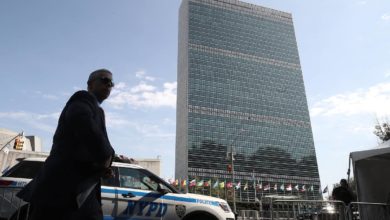More than 2,000 people are dead after a powerful earthquake with a magnitude of at least 6.8 hit Morocco Friday night near the city of Marrakesh, the largest such quake to hit the country in decades. A 3.9-magnitude quake, likely an aftershock, followed Sunday morning, according to the US Geological Survey.
The death toll is expected to climb as rescue workers search the towns and villages around the epicenter in the High Atlas Mountains and make their way through the rubble of Marrakesh’s old city, located about 70 kilometers north. In addition to the dead, some 1,404 people remain in critical condition, according to state broadcaster Al Aoula. Morocco’s leader, King Mohammed VI, has called upon the military to conduct search and rescue efforts, and other nations including France, the United Arab Emirates, and Turkey have pledged their support with the operation, though some rescue teams have complained that the government approval process is too slow as time to find survivors rapidly dwindles, according to the New York Times.
The area near the quake’s epicenter is known for its small, scenic villages tucked into the mountains while Marrakesh is an international tourist destination with a history dating back to the Middle Ages. The famous red walls representing the old city’s boundary, as well as the Kutubiyya mosque in the old city, had both been damaged in the quake, but the full extent is still unknown.
Many Buildings in the old city are hundreds of years old; the Kutubiyya mosque dates back to the 12th century. Because earthquakes are rare in Morocco, structures are not built to withstand them as they might be in a city like San Francisco or Tokyo. Additionally, the quake was just 18 kilometers below ground, according to the United States Geological Survey, likely increasing the damage and portending a high death toll. “I would expect the final death toll to climb into the thousands once more is known,” Bill McGuire, professor emeritus of geophysical and climate hazards at University College London told the Associated Press. “As with any big quake, aftershocks are likely, which will lead to further casualties and hinder search and rescue.”






